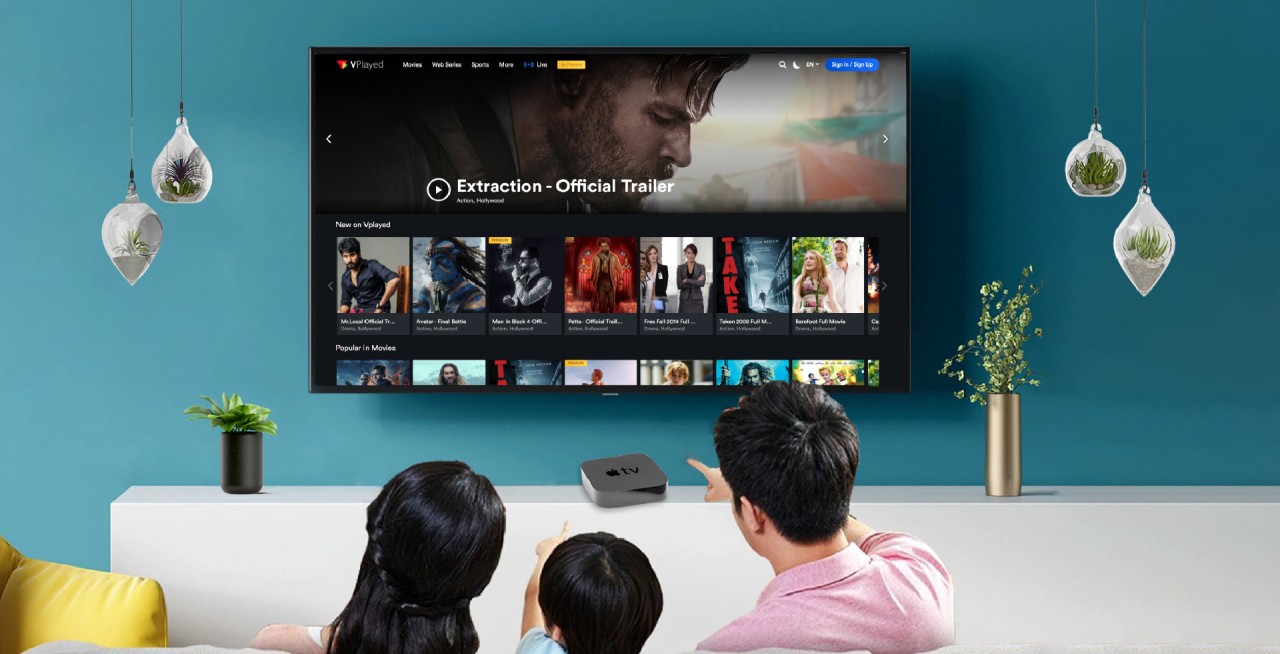The landscape of television has dramatically evolved over the past abonnement iptv few decades. From the days of black-and-white broadcasts to the advent of cable and satellite TV, the way we consume visual content has continually transformed. Among the most significant shifts in recent years is the rise of IPTV (Internet Protocol Television), a technology that is reshaping the television industry by delivering content over the internet rather than through traditional terrestrial, satellite, or cable formats.
What is IPTV?
IPTV stands for Internet Protocol Television. Unlike traditional TV, which relies on broadcasting methods like satellite or cable, IPTV transmits television content via the internet. This technology enables users to stream their favorite shows, movies, and live broadcasts directly to their devices, whether that’s a smart TV, computer, smartphone, or tablet.
IPTV uses a packet-switched network, like the internet, to send content. It works by converting traditional TV signals into digital packets that can be sent over an IP-based network, offering a more efficient and flexible way of distributing content. This method allows for a more personalized and on-demand viewing experience, enabling viewers to watch what they want, when they want.
Types of IPTV Services
IPTV is generally categorized into three main types: live television, time-shifted media, and video on demand (VOD).
- Live Television: Similar to traditional broadcast television, live IPTV allows viewers to watch real-time broadcasts as they happen. This can include sports events, news, or any live programming.
- Time-Shifted Media: Time-shifted services let users watch broadcasts that they missed at their convenience. This includes services like catch-up TV, which allows users to watch programs that aired hours or days earlier.
- Video on Demand (VOD): Perhaps the most popular form of IPTV, VOD services allow users to choose from a library of videos and watch them instantly. Services like Netflix, Amazon Prime Video, and Disney+ operate on a VOD model.
The Benefits of IPTV
IPTV offers numerous advantages over traditional television services, making it an attractive option for consumers and service providers alike.
- On-Demand Viewing: One of the most significant benefits of IPTV is the ability to watch content on demand. Unlike traditional TV schedules, IPTV lets users decide when and what they want to watch, giving them greater control over their viewing habits.
- Multi-Device Accessibility: IPTV can be accessed on various devices, including smartphones, tablets, computers, and smart TVs. This flexibility allows users to watch their favorite content anytime, anywhere, without being tied to a single device.
- Personalized Content: With IPTV, service providers can offer personalized recommendations based on viewing history and preferences. This level of customization enhances the user experience by suggesting content that aligns with individual tastes.
- Cost-Effectiveness: IPTV services can often be more cost-effective than traditional cable or satellite subscriptions. Users can choose from a variety of service packages, often paying only for the content they want to watch rather than a full cable package.
- High-Quality Streaming: Advances in internet speeds and compression technologies have enabled IPTV to deliver high-quality video streaming, including HD and 4K content. This ensures that viewers enjoy a superior visual experience without the buffering issues that once plagued online video.
Challenges Facing IPTV
Despite its many advantages, IPTV is not without its challenges. The technology relies heavily on a stable and high-speed internet connection, which may not be available in all areas. In regions with slower internet speeds or limited bandwidth, IPTV can suffer from buffering, lag, and lower video quality.
Another significant challenge is content licensing and distribution rights. As IPTV services expand, securing the rights to stream content globally can be complex and costly. Additionally, IPTV has faced criticism for enabling illegal streaming, with some providers offering unauthorized access to copyrighted material. This has led to legal battles and increased scrutiny from regulatory bodies.
The Future of IPTV
The future of IPTV looks promising as technology continues to advance and consumer demand for flexible, on-demand content grows. With the rollout of 5G networks, IPTV is expected to become even more prevalent, offering faster and more reliable streaming services. Additionally, the integration of IPTV with other technologies like artificial intelligence (AI) and machine learning could lead to more personalized and intuitive viewing experiences.
Furthermore, as more households cut the cord and move away from traditional cable services, IPTV is likely to see increased adoption. This shift will continue to drive innovation in the industry, with service providers exploring new ways to enhance user experience, such as interactive TV, immersive content, and cross-platform integration.
Conclusion
IPTV is undeniably a game-changer in the world of television, offering a more flexible, personalized, and cost-effective way to consume content. While challenges remain, the potential of IPTV to revolutionize the way we watch TV is vast. As technology evolves and internet infrastructure improves, IPTV is poised to become the dominant mode of television delivery, ushering in a new era of entertainment.

